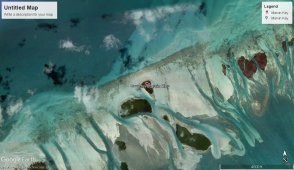DavenFla
New Member
- Joined
- Mar 23, 2022
- Messages
- 9
Retired for 7 years from Florida Power & Light (substations/transmission) ... you guessed it, in Florida. Competent with all voltages up to 500KV  and wiring both AC and DC circuits. (Recently built a shop (40'L x 30'W), so my next project is to provide solar powered. I'm on acreage so I'm not gonna do roof top panels. In fact I may put the panels on a 22' flat bed cargo trailer. I'll probably start with 12-100W panels with a distribution system capable of 3000-3500W of continuous AC output. This number based on my travel trailer, since I use 3500W generator (Champion 3500W Inverter duel fuel) when no hook ups/off grid RVing. MY AC unit uses 1750W when running, which is the highest demand appliance on my TT. This wattage is perfect for my needs and would also provide RV/shop power in the event of power outages. I have NO intention of using solar when traveling... at this time.
and wiring both AC and DC circuits. (Recently built a shop (40'L x 30'W), so my next project is to provide solar powered. I'm on acreage so I'm not gonna do roof top panels. In fact I may put the panels on a 22' flat bed cargo trailer. I'll probably start with 12-100W panels with a distribution system capable of 3000-3500W of continuous AC output. This number based on my travel trailer, since I use 3500W generator (Champion 3500W Inverter duel fuel) when no hook ups/off grid RVing. MY AC unit uses 1750W when running, which is the highest demand appliance on my TT. This wattage is perfect for my needs and would also provide RV/shop power in the event of power outages. I have NO intention of using solar when traveling... at this time.
So I'm at the beginning of my build with lots to learn by asking lots of questions. Any tacit advise would be appreciated. My first question is ... I'm not sure I want to component build my system so I find the EcoFlow Delta Pro Portable Power Station looks very interesting to me. Checks all the boxes but if it sounds to good to be true, well you know. https://ecoflow.com/products/delta-...ontent=smart&utm_medium=cpc&utm_source=google
Reviews seem somewhat scattered between "it's a freakin' miracle" to "don't waste your money".
Sure would love to hear y'all's real world experiences and opinions. Thanks and glad to be here!
So I'm at the beginning of my build with lots to learn by asking lots of questions. Any tacit advise would be appreciated. My first question is ... I'm not sure I want to component build my system so I find the EcoFlow Delta Pro Portable Power Station looks very interesting to me. Checks all the boxes but if it sounds to good to be true, well you know. https://ecoflow.com/products/delta-...ontent=smart&utm_medium=cpc&utm_source=google
Reviews seem somewhat scattered between "it's a freakin' miracle" to "don't waste your money".
Sure would love to hear y'all's real world experiences and opinions. Thanks and glad to be here!



